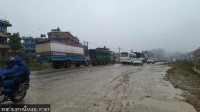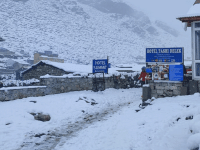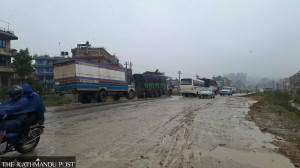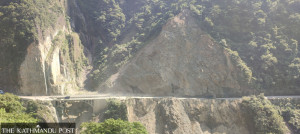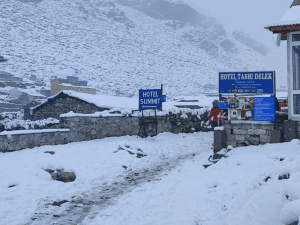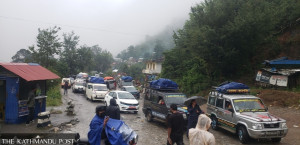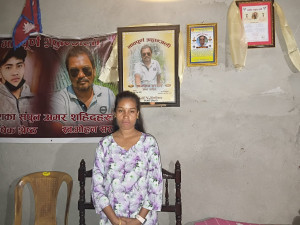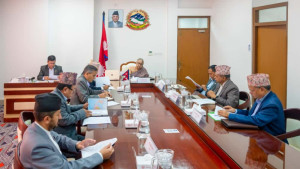Bagmati Province
Petition filed at top court to stop illegal mining in Sunkoshi River
Excessive excavation with heavy equipment has destroyed the river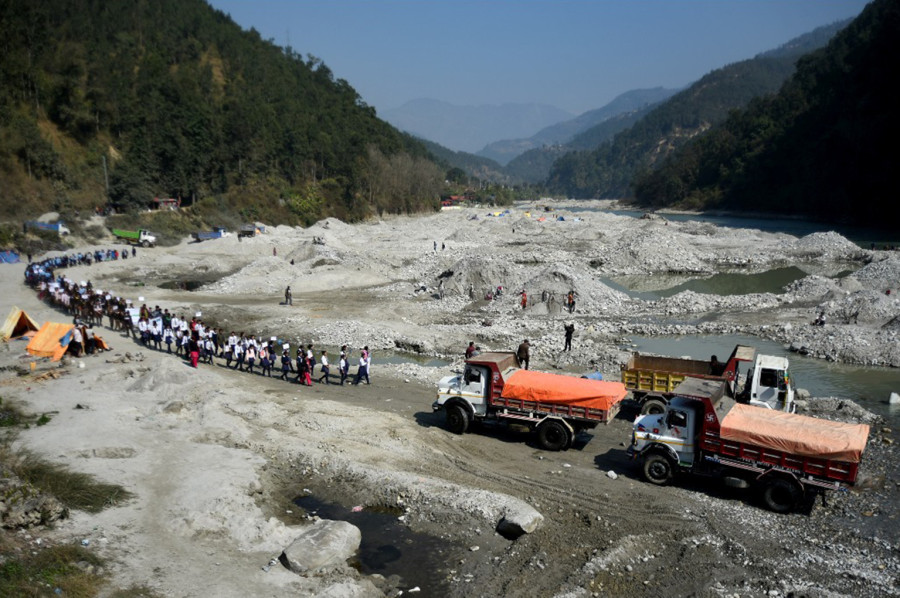
Chandan Kumar Mandal
A writ petition has been filed at the Supreme Court asking government bodies to stop illegal and excessive mining of sand, aggregate and boulders from Sunkoshi River.
Advocate Padam Bahadur Shrestha, representing Effort Lab, a non-governmental organisation, and advocate Chiranjivi Bhattarai on behalf of the Nepal River Conservation Trust and Narayan Shrestha, a local resident of Balephi Rural Municipality, Sindhupalchok, filed the petition on Thursday seeking an interim order to stop rampant excavation of sand and stones from the river.
According to advocate Shrestha, unchecked extraction of river resources from Sunkoshi has continued for a long time but the authorities concerned have failed to do anything despite strong legal provisions to discourage such practices.
“There are legal provisions mentioned in the constitution, Environment Protection Act and separate working procedures designed by respective provincial governments to act against illegal mining,” Shrestha told the Post. “But if we look at the condition of rivers, it looks as if there is no law and regulatory body. River products are being extracted haphazardly.”
Excavation of building materials from Sunkoshi and Indrawati rivers in Sindhupalchok district to the east of Kathmandu Valley has gone unchecked for years.
Holes as deep as 50 feet have been dug on the banks of these rivers for the mining of construction materials — such as sand and stones — which could be seen in areas stretching from Simle to Sukute and from Dolalghat to Melamchi along the Araniko Highway.
“All the existing laws bar deforming rivers, but if we look at what is going on in this river, ponds have been formed in the middle of the river. The river is completely deformed which can alter the whole aquatic biodiversity,” added Shrestha.
Sand mining and crusher plants operating on the banks of Sunkoshi have long been breaking rules and breaching industry standards while extracting riverbed materials like sand, stones and gravel.
These firms are currently operating over 100 excavators to extract sand and stones illegally round the clock, according to the petition.
“As per the existing working procedures, no heavy equipment can be used for the mining of riverbed resources. Many excavators are seen scooping up river aggregate. At the time of random raids by local authorities, they hide the equipment,” said advocate Shrestha.
“They are seen digging sand and gravel 24 hours, against the allotted 6 am to 6 pm timing.”
In July 2013, the government had introduced working standards for the crusher industries across the country.
According to the guidelines, crusher industries should be placed at least 500 metres from the highways and riversides; 100 metres from high-tension electricity grids and 2km from schools and colleges, health centres and hospitals, security installations, human settlement and religious and archaeological sites. The standards do not allow mining of resources from the middle of the river.
Under the existing standards, excavation of boulders, sand, and aggregate is banned from forests, areas inside protected parks and the Chure belt. They also specify the process of excavating resources from riverbeds.
Illegal and excessive excavations from riverbeds throughout the country, especially in the Chure region, have raised threats of environmental hazards and damaged infrastructure.
Stakeholders have also expressed their concerns over unchecked mining in rivers like Bhotekoshi and Sunkoshi affecting the local tourism industry.
“We have sought an interim order for effective implementation of the existing standards and legal provisions and stopping the uncontrolled mining of riverbed materials,” Shrestha said.
The petitioners have made the Office of the Prime Minister and Council of Ministers, Forest and Environment Ministry, Home Ministry and other federal ministries, various ministries of Province 3 and local units of Sindhupalchok district the defendants




 18.12°C Kathmandu
18.12°C Kathmandu



